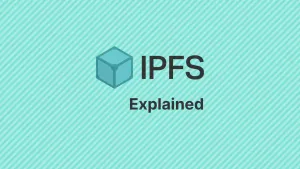We have entered a world where agreements execute themselves as trust is established in the code. Smart contracts have transformed the way we use contracts. They reshape the way we interact, exchange, and build trust in the technological world.
In today's blockchain environment, Web3 contracts, also known as smart contracts, are critical. They allow users to participate online through the blockchain and multiple Web3 dApps. In addition, they establish prerequisites for decentralised transactions without the requirement for centralized third-party verification.
What Are Smart Contracts?
A smart contract is a digital agreement that is signed and stored on a blockchain network, and it runs automatically when the terms and conditions of the contract are satisfied. Terms and conditions are expressed in blockchain programming languages like Solidity.
Web3 contracts allow you to trade different currencies, tokens, or different types of property. Furthermore, such contracts make these transactions transparent on the blockchain. As smart contracts are entirely digital and programmable, their terms are embedded in the code.
Furthermore, because these contracts are programmable, they can be distinctive and personalized in terms of rewards, regulations, and penalties. Most blockchain applications, ranging from non-fungible tokens (NFTs) to decentralised apps and the metaverse, are built on smart contracts.
Nick Szabo, a polymath and cryptography pioneer, created the term "smart contract" almost two decades ago.
How Smart Contracts Work?
Smart contracts are managed by simple "if/when...then..." statements that are encoded on the blockchain. Because smart contracts are digital, they may be designed to execute automatically in a six-step procedure.
1. Agreement
The parties that wish to do business or trade goods or services must agree on the terms and conditions of the agreement. They must also decide how a smart contract will work, including the conditions that must be met for the agreement to be acknowledged.
2. Contract Creation
Transaction participants can construct a smart contract in several methods, including developing it themselves or working with a smart contract provider. The contract requirements are written in a programming language. It is vital at this step to accurately verify the contract's security.
3. Deployment
Once the contract is complete, it has to be published on the blockchain. The smart contract is published to the blockchain in the same manner that typical cryptocurrency transactions are, with the code entered into the exchange's data field. When a transaction is validated, it is considered live on the blockchain and cannot be retracted or modified.
4. Monitoring Conditions
A smart contract operates by scanning the blockchain or an alternate trustworthy source for predetermined conditions. These indicators can be anything that can be digitally validated, such as a date achieved, a payment paid, and so on.
5. Execution
The smart contract executes when the necessary trigger conditions are met. An automated smart contract may conduct one or more activities, such as paying a vendor or registering a buyer's ownership of an item.
6. Recording
Contract execution outcomes are straight away displayed on the blockchain. The blockchain system checks the actions that took place, registers their completion as an exchange, and saves the finished agreement on the blockchain. This agreement is always available.
Smart contracts are simple yet powerful tools for automating agreements with speed, precision, and constant dependability. There is no need for a third party to intervene, which eliminates the need for attorneys and intermediaries, as well as the related expenses and delays.
Tools Used For Creating Smart Contracts
To build these smart contracts, developers use a broad set of specialized tools, each of which plays an important part in the design and deployment process. Some of these tools are:
1. Solidity
Solidity is the primary programming language used to generate smart contracts on the Ethereum network. The user interface is similar to Python, C++, and JavaScript. Solidity apps may operate on other blockchains, such as Polygon and Avalanche because they are compatible with the Ethereum Virtual Machine (EVM).
2. ChainLinks
Oracles on the blockchain collect real-world data from numerous sources and utilize the blockchain to send it to smart contracts. Chainlink is one of the most effective Oracle solutions available today. It delivers trustworthy and secure data to support smart contracts across various blockchains.
3. Ethcode
Ethcode is a Visual Studio Code plugin that allows you to create Ethereum smart contracts. It offers an easy-to-use programming environment for text, debugging, and unit-testing contractual code. The code used is open-source and straightforward to use for Microsoft users.
4. Octopus
Octopus is a tool for analyzing smart contract source code in depth. It provides code evaluation abilities such as symbolic execution, call flow analysis, and control flow analysis. This will allow you to identify and fix contract problems before they become irreversible.
5. OpenZeppelin
OpenZeppelin has established itself as one of the most prominent no-code solutions used in smart contracts. This open-source framework provides a library of smart contracts that may be readily incorporated, are secure, and have been peer-reviewed by the community. It also offers smart contract auditing and authentication services.
The set of tools will develop as technology advances and breakthroughs arise. The core concepts of safe coding, rigorous testing, and fast deployment, on the other hand, remain the pillars of developing trustworthy and useful smart contracts.
Advantages Of Smart Contracts
Smart contracts have a wide range of applications, from individual transactions to big corporate operations. Here are some of the primary benefits they provide:
1. Less Human Effort
Smart contracts do not require third-party verification or human supervision. This gives participants liberty and independence, which is especially important in the case of DAO. This inherent feature of smart contracts provides additional benefits, such as cost reductions and quicker operations.
2. Error Prevention
Every term and condition must be documented in precise detail in any contract. An omission might lead to major complications in the future, such as unfair penalties and legal complexity. Traditional mistakes are avoided by using automated smart contracts.
3. Backup
Smart contracts record critical transactional information. As a result, anytime your data is utilized in a contract, it is stored permanently for future use. It is straightforward to recover this information in the event of data loss.
Disadvantages Of Smart Contracts
Despite their various benefits, smart contracts are not without downsides. Here are some significant drawbacks to consider:
1. Transactional Delay
In certain circumstances, technology proves to be an obstacle rather than an opportunity. Congestion in a blockchain network can lead to a delayed transaction and ultimately increase transactional costs above the cost spent in traditional contracts.
2. Legal Constraints
Although smart contracts eliminate the need for middlemen and attorneys, all parties engaged must understand the legal implications of public, private, and commercial law.
These drawbacks are being actively addressed through research and development. Smart contracts can overcome these drawbacks and realize their full potential for changing numerous sectors as technology improves and regulatory frameworks evolve.
Conclusion
Smart contracts can drastically change digital transactions. They may establish immutable rules and conditions while ensuring transparency among parties. This technology has a few obstacles, such as a lack of qualified employees and limited support.
These, however, can be solved with time. Understanding how smart contracts function, as well as the tools for developing and deploying them, will be critical for businesses seeking to capitalize on technology in the age of decentralization.






